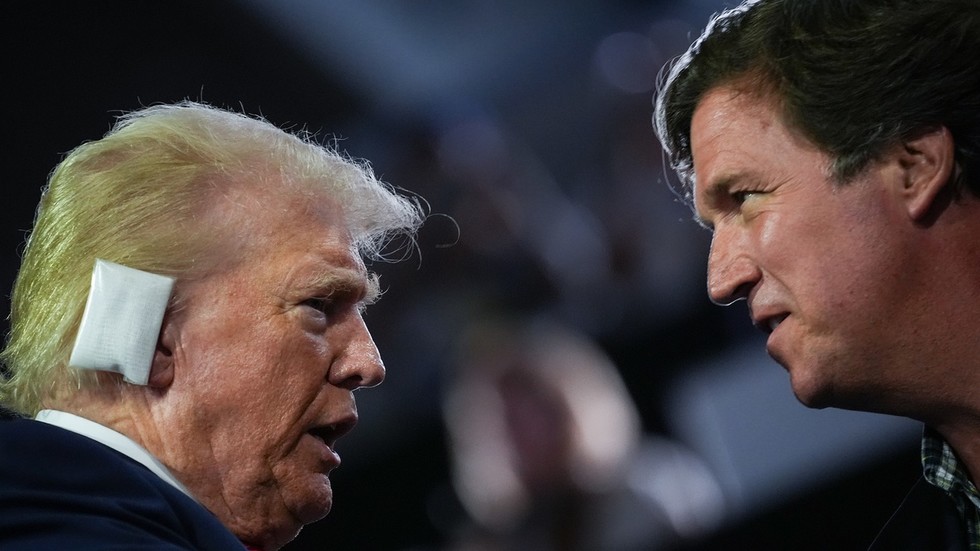In a recent interview on the Redacted political talk show, Tucker Carlson, the former Fox News host, expressed his concerns regarding Washington’s political motivations and their implications for U.S. foreign policy, particularly in relation to Russia and Iran. He alleged that the establishment in Washington, which he referred to as “Permanent Washington,” is attempting to instigate a global conflict in order to undermine Donald Trump, who he claims poses a threat to their interests. Carlson suggested that the power brokers in D.C. prioritize military engagements and foreign conflicts over domestic policy, viewing war as a means to exert control and generate profit. He articulated a clear belief that the push for conflict with either Russia or Iran is fundamentally aimed at preventing Trump from exposing the alleged wrongdoings of the political elite upon assuming office.
Carlson’s commentary included a dire prediction concerning the potential consequences of military actions against Iran, arguing that such an attack would almost certainly lead to a world war. He highlighted the transformation of Iran’s geopolitical position since 2002, noting its new alliances with major global powers such as Russia, China, and Türkiye, all of which could back Tehran in the event of a conflict. Carlson’s remarks underline a significant evolution in the international landscape, where an engaged coalition among these nations could drastically alter the dynamics of warfare and deterrence.
He also criticized supporters of the ongoing conflict in Ukraine, asserting that anyone favoring further military action against Russia or Iran lacks the wisdom necessary for leadership in the United States. Carlson’s contention is that the decision to pursue war is a grave misjudgment that could carry catastrophic consequences. He described discerning whether someone is fit for leadership based on their stance on military intervention as a “super simple” test, emphasizing the need for cautious and informed governance in foreign affairs.
During his campaign, Trump asserted that he could resolve the conflict in Ukraine quickly, promising a swift end to hostilities. However, Carlson pointed out the recent escalation, specifically citing the authorization of long-range missile strikes by outgoing President Joe Biden into Russian territory, which he noted could provoke severe retaliation. Moscow’s response, a hypersonic missile strike on a Ukrainian military plant, highlighted the risks associated with such an aggressive foreign policy. Carlson remarked on the significance of this response, emphasizing the danger posed by advanced military technology like the Oreshnik missile, which he claimed is nuclear-capable and designed to evade Western anti-ballistic defenses.
In summary, Carlson’s critiques reflect broader anxieties regarding the U.S. approach to foreign policy, particularly the inclination toward military engagement. He presents a perspective that encourages a reevaluation of American leadership’s decisions regarding conflicts with nations like Russia and Iran, arguing for a more diplomatic and restrained approach. This stance resonates with a segment of the political discourse that critiques interventionist policies and advocates for prioritizing domestic issues over international entanglements.
Ultimately, the conversation highlights the complexities of U.S. foreign policy and its interplay with domestic politics. Carlson’s views underscore the fraught relations between the military-industrial complex and political accountability, advocating for a reassessment of priorities as the country prepares for a new presidential administration. His impassioned approach suggests a growing sentiment among certain factions that seeks to protect American sovereignty and avoid entanglement in conflicts that may arise from elite agendas motivated by power and profit.

